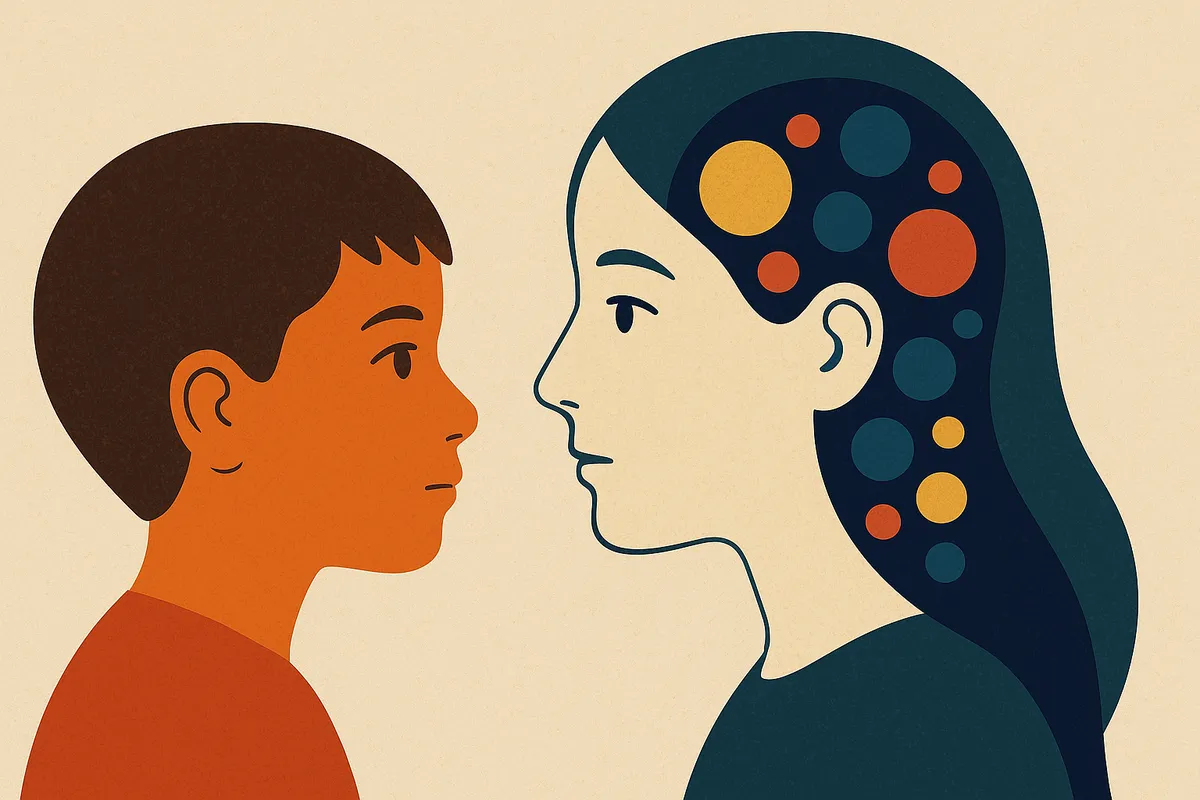What If Autistic Kids Aren’t Failing Theory of Mind—But Theory of Mind Is Failing Them?
 That’s the quiet revolution buried in a new study published in Molecular Autism last month. Researchers tested children with autism, ADHD and developmental language disorder on a range of Theory of Mind (ToM) tasks. Not just the standard Sally-Anne puppet routines, but a mix of verbal and nonverbal tests designed to probe how kids understand other people's beliefs and perspectives.
That’s the quiet revolution buried in a new study published in Molecular Autism last month. Researchers tested children with autism, ADHD and developmental language disorder on a range of Theory of Mind (ToM) tasks. Not just the standard Sally-Anne puppet routines, but a mix of verbal and nonverbal tests designed to probe how kids understand other people's beliefs and perspectives.
What they found wasn’t a simple hierarchy of social cognition. It was a landscape shaped by language demands, task structure and diagnostic expectation.
Autistic children performed worse on verbal ToM tasks. But when the language load dropped, so did the gap. On some nonverbal ToM tasks, autistic kids outperformed their neurodivergent peers. ADHD and DLD groups also showed uneven ToM performance—in different patterns. There was no monolithic deficit. Just a shifting interplay of cognition, communication and the methods used to measure them.
The Method Matters. So Does the Metaphor.
Because for decades, Theory of Mind has been less a scientific framework than a narrative scaffold — a way to anchor autism in lack. Lack of empathy. Lack of perspective. Lack of connection. It has licensed a thousand TED Talks and parent memoirs about the mysterious child who can’t imagine what others think.
But what if the test was rigged?
What if Theory of Mind tasks don’t just measure social understanding — they also measure whose ways of knowing get recognized as valid?
A Subversive Reframing of ToM
It pulls the frame back. It shows that when we stop casting autistic kids as the standard against which all social understanding is judged, a different picture emerges. One where language, attention, and experience shape how kids interpret minds — including their own.
What These Tests Really Measure
They’ve enforced it. They’ve told teachers, parents and clinicians: this child doesn’t get it.
But maybe it’s the task that doesn’t get the child. And maybe it’s time to retire the story of the socially broken mind — and start listening to the minds that never fit the story in the first place.